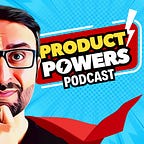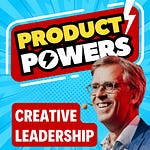Conflict is a natural part of life. It's inevitable that we will encounter disagreements and clashes with others from time to time. But what if there was a way to transform conflict into something positive? Something that could actually strengthen our connections with others? It may sound like a superpower, but it's actually something that many people overlook. We often believe that conflict can only have one winner, leading us to miss out on the potential for growth and understanding. In this episode, we will explore how we can navigate conflict and turn it into an opportunity for connection.
Kristine Scott
In 2008, Kristine took an AmeriCorps job running a meal program for unhoused young people. Almost 50 youth arrived on Kristine’s first night. What happened next was terrifying. Her purse went missing, there were fights and screaming guests. Kristine vowed to never return. But then something unexpected happened. A 17-year-old guest instantly turned the chaos into quiet, polite behavior with a single phrase. This began Kristine’s journey moving from conflict avoidant to conflict embracing. She has since trained thousands of people how to respond not react, lean in and not lash out.
To learn more about Kristine’s mission to create “conflict resolutionaries” wherever she goes, see https://www.seattleconflictresolution.com
Kristine’s book recommendation (Live Kind, Be Happy)
🔥 Our Sponsors: How do you know where to invest your efforts when helping your Agile teams? You could simply ask them, but what if you need a more scalable and robust approach? One platform that I personally use and recommend is Comparative Agility. It has the world's largest Agile maturity index with over 4m data points from over 14,000 organisations. You can try it out completely FREE at the following link, and be sure to let me know your thoughts:
⚡️ In each episode, Paddy Dhanda deep dives into a new human Superpower and practical advice on how you can apply it immediately.
👉 Sign-up to Newsletter: https://www.superpowers.school/subscribe
👉 YouTube: https://www.youtube.com/c/paddydhanda/
★ BUY ME KO-FI ★
If you enjoy the podcast, then you can donate a small amount here as a token of your appreciation: https://ko-fi.com/paddydhanda
Transcription:
[00:01:01] Paddy Dhanda: Dear friend, thank you so much for tuning in to another episode of the Superpower School podcast. I'm your host, Paddy Dhanda, and on today's episode we have a topic that impacts every single one of us in some way or other. And so I have a chief trainer with Seattle Conflict Resolution.
Christine Scott has joined me today who's an expert in conflict resolution. Hey, Christine. Welcome to the show. Thank you, Paddy. Christine, you are from the city where Starbucks started. Would you like to tell us a bit more about this wonderful city of yours in case anyone hasn't been there?
[00:01:41] Kristine Scott: We like to tell everybody that super rainy and that you don't wanna come here.
That way all of the folks that are moving here, we can offset the bad traffic a little bit. But it's beautiful. I've got mountains on one side, the Puget Sound and the ocean on the other orcas and bears and just beautiful, natural stuff. It's great for those of us who like to hike and go
[00:02:02] Paddy Dhanda: snowshoeing.
Oh, and are you a Starbucks drinker?
[00:02:06] Kristine Scott: I actually, I'm pretty scary on coffee, so I am not.
[00:02:10] Paddy Dhanda: Oh my God. Oh wow. So they haven't worked their magic with you, so that's disappointing. 'cause I was gonna ask you like, what is the quality of Starbucks there versus anywhere else?
It's a bit like Guinness, people say if you have a Guinness in Ireland, it tastes totally different to anywhere else in the world. Because that's where it comes from.
[00:02:28] Kristine Scott: Well, that, that's a challenge I might wanna take up. Yeah. The Guinness Challenge, not the coffee challenge.
Oh, okay.
[00:02:36] Paddy Dhanda: I'm not sure which one I'm more excited about, but yeah, I think both of those would be good for different times of the day maybe. Christine, which superpower would you like to bring to this particular episode?
[00:02:45] Kristine Scott: Well, I would love to talk about conflict resolution.
The superpower to turn conflict into connection is something that a lot of people miss out on because we have bought this narrative that conflict has only one winner. And so we miss a lot of opportunities to actually turn all of the big feelings and the raw emotion and the honesty that comes with that into connection with others.
So there's basically three superpowers that I have identified as a part of good conflict resolution. I would love to talk people through how that works.
[00:03:24] Paddy Dhanda: Oh, now you got me intrigued. I can't wait for this conversation. But before we dive in, Christine. I wanna know how you got into this, because a question I often ask my guests is, when you were growing up around that age of seven or eight, I'm sure this was not your dream job.
And no. What led you down this path? Because I think it's always really interesting to hear people's stories and their backgrounds. Many people end up in something because of circumstance or they've had to deal with certain adversity themselves, so I'd love to know your story.
[00:03:57] Kristine Scott: Yeah. I had a lot of adversity.
I grew up in a violent home, and so I was one of those victims of that conflict as one winner. Perspective, right? There was always one winner and I was always the person who had the biggest violence, the biggest feelings in the room, shall we say. When I got into social services, I sucked at conflict.
I would respond way too aggressively or way too passively as a part of my upbringing. That's all I knew, right? That was what my biology taught me to do. You either take control of everybody or you're a doormat, and our biology perpetuates that. I kept on screwing up and getting curious how are other people handling this?
Because at the time I was working with young people who lived on the streets. Conflict was a constant for them. Their lives were always under threat, and I started watching how they handled it, and they were doing much better at it than I was, and they had much bigger threats to their very existence than I did.
And so they became my greatest teachers. I have a funny story. One night I was pulled over for speeding and the cop was taking forever to come back and tell me if I got this ticket. And I thought it's been 20 minutes, clearly I've got the ticket, right? And they walk back to the car and they say, you must be the un luckiest person I've ever met.
And I'm like, yeah, because you're giving me a speeding ticket, right? And he says, no, because. You have witnessed a stabbing, a shooting, two arsons, an overdose, blah, blah, blah, and he just lists all the stuff that has happened during my social services career that I was the one that called 911 and I had no idea that they kept track of those records.
And I just said, oh no, that's from my job. Essentially because I've been exposed to so much conflict and I've had to make this journey from being really terrible at it to getting better at it and had so much practice, I finally realized, well, I need to teach other people this. 'cause it's been a big source of liberation for me to get out of that.
Oh, some only one winner idea, right?
[00:06:18] Paddy Dhanda: Oh wow. So during those days of when you were doing this for a living, like what different types of conflict that you have to deal with. It sounds like there's some pretty traumatic stuff in there, but could you give us a range of examples just so we know what we're talking about when it comes to conflict?
[00:06:36] Kristine Scott: Everything from physical violence to mild manipulation and intimidation. Because when you're on the streets, your credibility is basically determining if you're gonna live or die. If you have no street credibility, then the other people from the streets will mess with you, or they won't protect you from all of the folks that are out to go after this.
The young people who live outside. How you show up in the face of conflict is really important. And I watched them navigate these very important social relationships. It was the full range for sure.
[00:07:12] Paddy Dhanda: Yeah. I'm just thinking about myself, like when it comes to conflict, I'm not very confrontational.
I'm the type of person that would rather just walk away from the conversation if it starts to get too heated. And I'd rather just let the other person feel like they've won sometimes. 'cause I'm just like, Do I really want to prove my point? Sometimes you have a disagreement over something and I may even know like I'm a hundred percent right here, but do I really want to expend all this energy just to prove a point to this one individual? And so I tend to then find any opportunity to walk away from that. But are some people. Just naturally better at this than others, or do you find we're all pretty similar?
[00:08:00] Kristine Scott: I think it's a developed skill. It's kinda like public speaking. It feels really awkward at first because you have a lot of big feelings that come up and that's normal, that's natural, and you just feel like You're a conflict robot. Like, okay, I'm supposed to not say anything that's gonna provoke them, but I don't know, like what to do with my body and I clearly, I feel some tension and I've got all this cortisol and adrenaline telling my body that it needs to go into fight, flight, freeze.
Basically Most of my working with people is training them how to not be escalated themselves. How to get back into that parasympathetic nervous system and you're talking in your earlier podcast about that curiosity and that human connection and those soft skills. All of those are exactly what we need to be doing with conflict, right?
We need to come from that parasympathetic, what I call the green zone. Where we can be curious about this other person, all of their barbs and insults. We don't take them personally. We've got like the Wonder Woman bracelets, we're just gonna defend against those and not let it in because we know it's ultimately not about us.
We just have this other person who's on their own journey and for whatever reason they're having a rough time and that I'm not responsible for their rough time. When we have that flexibility to really take care of our own self, right? Then we can be curious about them, so that starts with self-compassion and it also starts with what I call clarity of purpose.
What is my role and what is my goal in this conversation? And once I have that role and that goal, Then I've got like Superman's, x-ray vision. 'cause I can just look into what's going on for this other person and know that I'm solid, I'm stable. Like even if they radically disagree with me, my role and my goal isn't to get them to agree with me.
'cause that's, I can't force that. Right.
[00:10:03] Paddy Dhanda: Yeah. And I was gonna say like with certain skills you. Know when you need to apply them upfront. Like it's almost pre-planned. So I'm thinking about public speaking. We have a scheduled presentation. And so we can almost get ourselves in the zone for that, and we have time to prepare.
But conflict resolution is very different to that because you just don't know what's gonna happen next and when you're gonna have to evoke this superpower. So I think for that reason it becomes even more difficult because. You just might not be in the right state of mind to have that conversation.
At that point.
[00:10:42] Kristine Scott: Yeah, and that's when I encourage people, please set the terms around your engagement so when something comes out of the blue at you, just to say, wow, Patty, that is a great question. I wanna give this my undivided attention. I can't do that right now. Can I circle back to you in 15 minutes?
So now I'm gonna go to the restroom, and for the next 15 minutes I'm gonna like, okay, what's coming up? What do I need? Right? Get back to that green zone. What's my role? What's my goal? And if this relationship's important to me, I'm gonna have that difficult conversation and I'm gonna focus on why I wanna maintain the relationship, even though Patty just said something that got all my dash lights blinking, right?
[00:11:29] Paddy Dhanda: Oh, that's a great tip actually, because the majority of the time, I don't even think to take that break. You are so engaged in that experience that you sometimes don't even think about or you don't think rationally. You don't think that, well, if I continue this conversation, it's gonna end badly because I can already see this other person's really worked up.
They're really emotional. Or actually this is. Starting to create this emotion inside of me. And often the best way is just for both of you to take a break and then come back. And then see if you're still feeling the same, because otherwise Yep. If we're hot headed, I can imagine it's gonna be trouble.
Christian, you mentioned you have three superpowers when it comes to conflict resolution. So would you like to tell us a bit more about those?
[00:12:17] Kristine Scott: Sure. I mentioned the Wonder Woman bracelets, right? Being impervious to those insults or those sudden demands of our resources.
For me, that's just really curiosity. Like, can I be curious about what's going on with this other person? If I can be curious. That means I've already done my own work around being able to see past their bad behavior, using that X-ray vision to focus in on what's my goal, what's my role, right?
So need those two superpowers to work together. Because when I have my x-ray vision going, I'm seeing the person and ignoring the patterns or ignoring the behaviors that I find so irks in. I get to be really curious, like something's got them worked up. It very likely has nothing to do with me.
But for whatever reason, they are really amped up. And if I'm honest about it, the last time I was amped up, I wasn't really nice. Think about ways you can empathize with this particularly bad behavior that they're doing, because we all do it to each other. And one of the things that used to happen when I was running a shelter, Is most of my staff were actually college student volunteers, so they're the same age as the people we're serving, and invariably in the first two months, they would get what I call hazed, right?
The shelter youth would just do something in their direction to see what they were made out of. And they would've come to me like, oh, so and so did such and such, they don't like me, da. I'd say, oh, here's another way to look at that. What if they don't know if they can trust you yet, and they just kinda wanna see they're just testing your metal.
They trust you enough to be curious about you, and now they're just seeing what you're made out of. And every time a relationship is ready to see what you're made out of, it's going to include these unrealistic demands, these bad behaviors, because that's like the relationship asking for like how much.
How much can we get past the super superficial office nicety? And if you're gonna lean into that relationship, and if you can think of times that other people have leaned in for you, then it makes it easier for you to get past the behavior again and look at the person.
[00:14:48] Paddy Dhanda: That could be really daunting for someone who's quite young, like you mentioned, you've got. Staff who are of a similar age to the the recipients of the service that you're offering there. And I can just imagine at that kind of young age that could be quite challenging for anyone, regardless of age.
What are some of the techniques and tips that you could give to someone who is maybe in that situation? I know before you and I started this conversation, you posed me a question and I've been pondering over that question as well. It'd be great for us to maybe put this into practice so people who are listening can see it in action.
[00:17:04] Kristine Scott: Yeah. I encourage people before you have the difficult conversation, before you schedule it or set it up, that you do your own work. You get really clear about what is it that I wanna have happen here? And I remind folks that they are all going to have the same. Kind of engineering that we've all been engineered over thousands of years of evolution.
That kindness is our operating system and we've lost track of that. 'cause the last 200 years it's been very much about scarcity and competition and extraction and all of that kind of stuff. Basically we have many more thousands of years of kindness. They've done a lot of research around how this works for humans.
Once you understand that idea that we're all wired for kindness unless you're a sociopath. Like we all want it, we all want human connection. So if that's the given, what's in the way of me having connection with this other person? Oftentimes it's bad company culture hierarchy.
My own fears about if I'm , a good leader, or if I'm a good employee, all of this stuff. And once I get digging into that, I can start looking at, oh, okay, so actually my goal and my role here is. For me to do well in this job, I need to have a really good relationship with this coworker.
We have a lot of overlap and that I can come from that place and so I have a worksheet that I walk people through the difficult conversation worksheet, right? Just go through that and once you've gotten that done, Then you can lean in and say, so Patty I've got this area that I really need your feedback on.
Can we schedule a time just to sit down without any distractions or interruptions? And I recommend you find a place that's neither person's desk, right? Find a place that's pretty neutral and that you've actually scheduled more time than you need because this is you demonstrating to them. My relationship with you is important.
And it might be something that you are giving feedback or receiving feedback around a topic that's a little conflicted. Like for example, say that every time you and I are in the same staff meeting Patty, that you've been cutting me off or taking credit for my ideas, right? So what I'm gonna do is actually a little tactical.
I'm gonna say, you know, Patty, I've noticed that. When I start to talk in staff meetings that my ideas never quite come out all the way that I just somehow get sidelined or sidetracked somehow. And I noticed that you are much more successful in getting your ideas across to the finish line. I'm wondering if you could give me some coaching or some thoughts on that, or maybe you could just start witnessing what you're noticing in staff meetings and give me some feedback.
That's so much better than saying, well, you are such a jerk, and you've been stepping all over my ideas in the staff meetings, right? Just give them the benefit of the doubt. Assume that they don't know that this is what they're doing and say, I'm just noticing this thing and I'm wondering if I could count on you.
Generally they'll be, oh, yeah, I would love to help, and da dah. And then later they might realize oh I'm a part of the problem. And Christine pointed out a very real thing that's happening. And they don't even have to admit that to you. But because you've opened up the possibility so kindly without trying to destroy their ego, without trying to make them wrong, you've given them this great opening.
To be aware of the problem.
[00:20:47] Paddy Dhanda: Oh, that's a great example. And I think kindness is also a superpower that I found can work wonders that also killed them with kindness. Is one that pops to mind, but in this situation, I see how your flipping that on its head a little bit to say, well, I still want an outcome here that's gonna help me, but I want you to navigate through that at your own pace. And so you are really giving them the ownership of getting to that outcome in a way, which is quite a smart little tactic there, Christine. I like that one. I might have to use that one with my kids.
[00:21:28] Kristine Scott: Yes.
[00:21:29] Paddy Dhanda: Yeah. So like with my son, he's always on the iPad. He's always watching YouTube. And he just zones out. So I'm calling him like 20 times and he won't respond at all. And then eventually he gets into trouble and I'm like, how could I have dealt with that better? Because now he's angry 'cause he's defensive about it and yep. I probably not helped the situation so. Maybe I could reverse it on him in some way. For sure.
[00:21:55] Kristine Scott: Yeah. My son has a similar problem and I just told him, you know what? If I can't get ahold of you on your cell phone, then I'm gonna stop paying for your cell phone, because clearly it's not working.
And for him, The desire to keep the cell phone has actually increased his capacity to actually use it as simple as that sounds, it's been working.
[00:22:20] Paddy Dhanda: So, Christine, is there like a checklist of some sort that you would say? Depending upon the type of conflict you are having, then you should try these strategies. Like how do you work out what the right strategy is? I'm guessing there's other strategies out there as well that you suggest, so could you share some of that? Because, I could imagine there's loads of different types of conflict. There could be marital conflict, there could be obviously the parent child conflict. But at work with your boss, all sort of neighbors,
[00:22:52] Kristine Scott: It's everywhere.
Folks came out of lockdown without people skills. I don't know what happened. Our people skills just evaporated while we were locked in our own homes. There's conflict everywhere and There's kind of the macro level stuff that we've been talking about, like, know your goal, know your role, make sure you're in that parasympathetic nervous system when you're having these demands on your attention or these difficult conversations.
But within that there's some very specific things you can do to stay in or return to your parasympathetic nervous system. Like once that gets hacked, you're worthless for about 20 minutes. So don't, if you feel that heightened stress. Kind of response going on that feeling like, oh, everybody's out to get me and I have to resolve this right now, and da.
Like, when you feel that urgency, those are the flashing lights. Do not proceed. The scene is not safe. You're just gonna make it worse, right? I really encourage people go take a break, change your environment if possible, move your body. Because your body, once it gets flooded with adrenaline and cortisol, it believes it needs to like, physically vanquish its foes or run like hell.
So, go move yourself. And once you've calmed down, give yourself some space to reflect on what's really happening here. Again, what's my role? What's my goal? What are my opportunities to be curious about this person? And if you don't have the resources to think well about this other human, you're not gonna resolve the conflict.
You're just gonna make it worse. There's this space between how we are really ourselves and who we project to the world. There's a gap between those two things. When somebody gets under your skin, it's because there's a difference there between who you really are and what you want the world to know about you.
Right. And when we're feeling insecure, boy, it's so easy for people to hook into that gap. Yeah.
[00:24:57] Paddy Dhanda: I was thinking about even on social media, there was a while back where somebody commented on a post I made, and at the time it was like, oh my God, I've gotta respond, I've gotta respond. And then luckily I took a deep breath and didn't respond, and it just gave me some time to think about what I was gonna say.
But it was something silly, it was just the fact that this person had really disagreed with things. I can actually remember the situation, so I had posted a snippet of one of my episodes on LinkedIn and the guest, he was a professor of creativity and he had literally been studying creativity his whole life.
And so Wow. He's a pretty experienced expert in this area. And I just remember, like someone had commented on his. Message in this clip. And they had really badmouthed him gone, you know, I can't stand it when people start talking this way. He was talking about malevolent creativity and how creativity can be used for bad.
And he gave some examples. Oh yeah. And this person just really didn't like his angle to say, oh, how dare you make creativity into this bad thing and you're just making up stuff now, and blah, blah. And it was really rude and I felt compelled to jump in. Because I felt a responsibility for this guest.
'cause I'd been on my show and I put this poster out there, but I took a step back and it's quite interesting, the conversation between the two of them then. So the guest and the poster of the comment, it started off really hotheaded and then you just follow the comments down and towards the end they almost ended up in a situation where they both Said, we'll agree to disagree kind of thing, but there was no like, animosity,
[00:26:46] Kristine Scott: there's no resolution.
Yeah. But at least the tension
[00:26:48] Paddy Dhanda: reduced. Yeah, absolutely. But I can see, like the first few comments were really almost like battling against each other and then the whole situation just calmed down. But even a silly example like that, you get into these, circumstances without even wanting them there. They just happened to you, as I mentioned earlier.
[00:27:08] Kristine Scott: I'm proud of you that you didn't just insert yourself and that you just let them be the adults figuring it out
[00:27:14] Paddy Dhanda: on their own.
Probably given me too much credit here, Christine. I think the truth is I was trying to think of something really smart to say and I just couldn't think of anything. So I just I pondered and by that time it was too late. 'cause I had already finished the conflict.
[00:27:26] Kristine Scott: The third superpower related to conflict that I wanted to mention is you've probably seen Wolverine and Superman. They have this healing power, right? They can receive this mortal wound and just heal it up, right? And conflict shows you, wherever you're not healed, whatever wounds that you received as a child or as an employee or as a partner, whatever.
That haven't been healed. Beliefs about yourself, that aren't true. Beliefs about others that are somehow limiting or grandizing. All of those things will come up in how conflict shows up, how it feels in your body, how it feels in your brain. Like all of those big emotions will be a little barometer that says, oh, something's out of whack here.
I really encourage people do some journaling. I also have a boundaries worksheet that I can share with your listeners that basically next time your toes get stepped on, kind of guides you through four questions to write out like what happened there da and you get better at stating boundaries.
About how you wish to operate in the world. That's not about other people. It's just about you being true to your own self. Once you can get good at that you'll find yourself a lot less reactive because you bring your safety with you wherever you go.
[00:28:51] Paddy Dhanda: That'd be great. I'd love to make that available to the listeners. So we'll include a link in the show notes for that. Okay. Yeah. 'cause in, you mentioned near the beginning that there's lots of research in this space. Could you share some of that for us? Because I'm a bit of a geek when it comes to research, and I love to hear.
[00:29:09] Kristine Scott: This is my latest favorite new book is live Kind, be Happy. I'll give you a link for this one as well. Because, Having that basic understanding that others wish to connect and wish to be kind to each other, but we fail to do that out of our confusion or out of these ideas of, well, organizations have hierarchy and hierarchy looks like this. We have some screwy stuff, but underneath it all is our desire to connect, is our desire to be valued, to be seen. And if we lean into that, we'll often find that it works. For example, when I was running the shelter, every time I noticed somebody was mean, mugging me, or it didn't seem very favorable in my direction.
I was the executive director, so I had very little risk here, but I would just go up to them and say, Hey, I noticed you're not as outgoing and warm in my direction as you normally are. Like, is there something I need to know, something I need to change or do differently?
Nine times out of 10, it had nothing to do with me. They were just having a bad day. Whatever was going on for them. Normally what we do is we internalize that. We say, oh, well, Patty's not happy about something I did. I don't know what's up his, but blah, blah, blah, blah, blah, blah, right? We start, we create the story, and then the story becomes a wall between us and so again, if you assume they really wanna connect, they just don't know how, and it makes it a lot easier to lean in without that curiosity.
And if you show yourself compassion first, like, no, I'm good. I'm fine. I have resources, I'm ready. I've got the green zone onboard, ready to have this conversation, ready to be curious about them. Then I can show them compassion as well. And I can really think about what's a win-win? Because conflicts never resolved until both people feel good about it.
So like your text exchange with the people. On LinkedIn. Clearly when those folks went away from that conversation, it doesn't feel resolved to either of 'em. There was no point at which either one of them felt seen or heard. They just notice the difference, right? And I really encourage people go for the resolution.
That increases your understanding and your trust with this other person. And if you know that whatever happened between you is not gonna happen again. Then that conflict is resolved until then it's just kicked down the road.
[00:31:42] Paddy Dhanda: Yeah, because that's sweeping it under the carpet and then just hoping.
It never happens again. But then you'll probably find that there's a similar trigger and then it happens all over again. I can absolutely see the logic of that. And Christine, so you must have had lots of conflict resolution conversations over your career. Is there one that really stands out for you as being one that you are most proud of, or at least.
It could have been the most difficult and then you've somehow resolved it. Could you share something that, I
[00:32:15] Kristine Scott: think the one that was the most revolutionary for me was where I was the bad actor and somebody called me out. I had people who were supervised by somebody I supervised who called me on my CREP and went two levels up to do so.
I spent the first probably 15, 20 minutes of our meeting just defending and doing the white lady superiority, executive director, positionality. I could do that if I want to, and da. And it in my right to hire whoever I want to, and I don't have to have people on my hiring panel and dah.
Right? Like I was not hearing it. What they did that was so beautiful is they kept leaning in to my humanity. They kept leaning in for connection and kindness and basically saying, we know you're capable of better than this. We've seen how much you want to do and how much you want to introduce anti-oppression into this organization.
And your actions on this hiring panel are out of sync with that bigger desire. And we felt obligated to let you know that we see that.
I just lost it. I started to cry because after I had wasted all of this time defending and positioning myself. I realized that what they wanted and what they were calling forth was the deeper connection and not something on my job description. It worked. 40 minutes later, I am like changing my perspective on this hiring panel, and I had deepened my connection with these two staff members.
It was a really gutsy move on their part. Really gutsy move. And I'm forever grateful and I actually ran into one of them recently at a protest and I just said, I need you to know how much of a catalyst the courage of that moment was for me.
[00:34:24] Paddy Dhanda: Oh wow. That's actually an example where it's completely changed your thinking and your mindset and had a, an ongoing impact, which is not temporary, but like you say, you are to this day grateful for that conversation. That's a really lovely story, so thank you for sharing that. Yeah.
Wow. Christine, we're. Fast approaching time, and I wish we had more of it, but unfortunately, I'm sure you've got other things booked and I'm probably booked on other stuff as well, so if you could let us know how can people get in touch with you and if people want to know more and they want to talk to you more, what's the best way to do that?
[00:35:05] Kristine Scott: Yeah. I would encourage them to find me on my website, which is seattle conflict resolution.com, and just add yourself to my mailing list so I can send you more resources and materials. I also have a new online training that's soon to be on my website where people can actually pay. To go through an interactive training, learn what their conflict styles are, and overcome some of the barriers inherent with your particular conflict style.
[00:35:35] Paddy Dhanda: Oh, that's great. We'll share that link in the show notes as well. Last thought, Christine from. What you are seeing in the world? Are we winning this conflict battle or are we losing it? Because every morning I wake up and I watch the news and I just hear about more and more conflict in the world.
So there's a part of me that thinks the world's getting more and more violent and things aren't going the right direction. But what are you seeing on the ground when you go out and talk to people?
[00:36:06] Kristine Scott: Maybe it's the optimist in me, but I think it's getting better. I think everybody going through this shared trauma of this pandemic has made people more curious about what authentic connection looks like, and I'm seeing folks form Zoom meetups and things that are about connection and about creating more inter reliance.
And people are starting to understand that isolation is bad and that idea echo chambers are bad. People are getting past that and it doesn't mean we all know how to do that next step. But one of my favorite stories is you look at how Meetup formed, I don't know if you're familiar with the website
[00:36:53] Paddy Dhanda: Meetup, but I am.
But I'd love to know the story 'cause I don't,
[00:36:57] Kristine Scott: that was after nine 11. After New York was so traumatized by the huge tragedy of the loss of those lives, everyone noticed oh, we're all treating each other so gently and so kindly. I wonder if we can make an app that continues that mojo. And so I think we're at the, a similar point as a globe, right?
Just like we all had this tragedy. How can we continue this sense of, wow, we've come out of the dark, out of our caves and we wanna be in touch with each other, but all we have are these really bifurcated little pockets of social media. That's not working for us.
[00:37:38] Paddy Dhanda: Oh, what a wonderful way to finish this episode.
I'm absolutely familiar with Meetup because I've benefited from the app myself. A good friend of mine and I, we set up a community during lockdown, and it was for exactly that reason that we were missing that connection with people. And almost two years later we have almost two and a half thousand members.
So it's just grown exponentially and amazing how the app has helped us to create that community. So, yeah, absolutely. Empathize with everything you've just said there. Christine, thank you so much. It's been a pleasure to get to know you and I've certainly walked away with some tips that I'll be trying out especially on my kids.
So, thank you for that.
[00:38:19] Kristine Scott: Your son is not gonna thank me.
Thank you. It's been a pleasure to talk to you as well.











